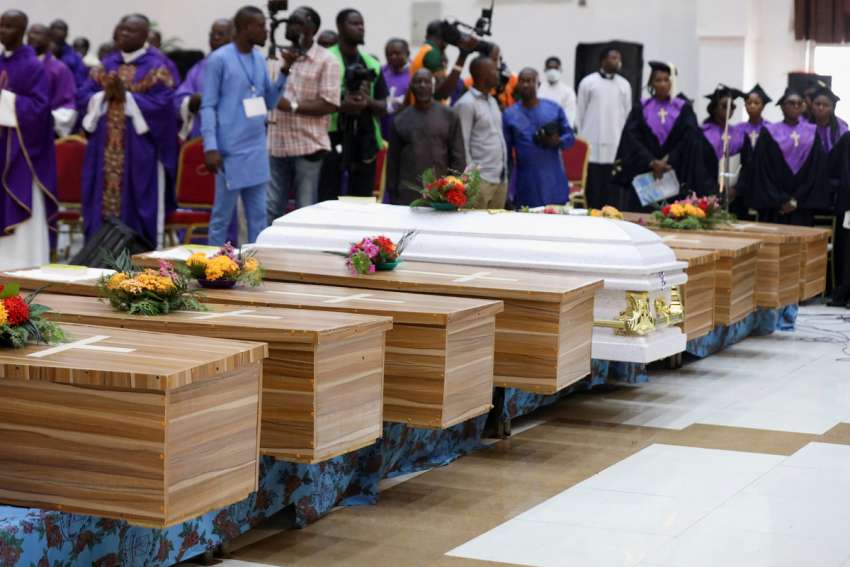According to the Pew Research Center’s 14th annual analysis, bureaucratic controls on religion peaked globally in 2021. (Pew research usually takes two years to analyze any year’s data, but was delayed for this report by one of its main sources reporting late). The non-partisan American think tank qualifies government restrictions as “laws, policies and actions by state officials that limit religious beliefs and practices.”
As stated in the study co-authored by researchers Samirah Majumdar and Sarah Crawford, “the global median level of government restrictions on religion ticked up to 3.0 in 2021 from 2.8 in 2020 on the Government Restrictions Index, a 10-point scale of 20 indicators. This was the highest global median score since we began tracking restrictions in 2007.”
Notably, China leads the world with a 9.1 GRI score. Canada’s GRI score in 2021 was 2.1, below the world median but up from 2.0 in 2020 and 1.0 in 2007.
Heavily influencing the Government Restrictions Index (GRI) score are the measurements of government harassment of religious groups and state interference in worship. This can include physical force, derogatory comments and laws and policies that make life difficult for religious groups. The study indicates that governments harassed religious groups in 183 countries (92 per cent of all nation states analyzed), which is up from 178 the year before and 118 in 2007, the inaugural year of this study.
The report spotlights explicitly the government of Nicaragua, which “has targeted Catholic clergy for supporting the country’s pro-democracy movement.” It mentioned how President Daniel Ortega and First Lady Rosario Murillo (also the vice president) “called priests and bishops ‘terrorists in cassocks’ and ‘coup-plotters.’ ”
The Pew Research team also wrote about how Geert Wilders, the leader of the growing Party for Freedom in the Netherlands, has called for “de-Islamization” of his country on his X account and in different public statements.
Another critical government harassment metric: Christians were persecuted by government harassment in 160 countries in 2021, the most of any religious denomination. Muslims were targeted in 141 countries.
Government interference in worship services reportedly occurred in 163 countries (82 per cent of the 198 studied), down from 164 in 2020 but dramatically up from the 112 that experienced obstruction in 2007.
Canada is singled out in this sub-section of the report as “several Canadian clergy were fined and arrested,” and other houses of worship received fines for holding worship services in violation of the public health orders instituted to combat the COVID-19 pandemic. The study alluded to Vancouver Archbishop Michael Miller and other church leaders filing a petition in the B.C. Supreme Court to challenge what he deemed unfair treatment. As the Pew Research report stated, “the churches contended that there were fewer restrictions on restaurants and other businesses, as well as on Orthodox Jewish synagogues that were allowed to hold indoor services.”
Other indicators that influence the GRI score are the level of capital allotted for religious education, government benefits for clergy and whether religious properties are provided funding and tax exemptions.
While the GRI was at a new high, the research reveals that the “global median level of social hostilities involving religion fell from 1.8 in 2020 to 1.6 in 2021 on the Social Hostilities Index (SHI), a 10-point scale composed of 13 indicators.” Social hostilities are “violence and harassment by private individuals, organizations or groups.” There were 43 countries in the world (22 per cent) that had “high” or “very high” levels of hostility (a 3.6 SHI score or higher) in 2021.
Nigeria is heavily spotlighted in this section as its SHI score was tabulated at 8.9, the highest in the world. This alarming score is primarily driven by “intercommunal clashes” – driven by competition for natural resources – that occurred throughout the year between “predominantly” Christian farmers and Muslim herders.”
India’s SHI of 8.7 was the second highest. According to the United Christian Forum non-governmental organization, “the number of ‘violent attacks’ targeting Christians increased from 279 in 2020 to 486 in 2021.” Hindu nationalist groups also waged attacks on Muslim properties.
Canada’s SHI score in 2021 was 2.4, a marked increase from the 1.5 in 2020 and the 1.2 in 2007. The reasons for the rise are not mentioned, but Majumdar was asked if and when acts of vandalism or arson on churches would be factored into this metric.
“When incidents target places of worship or religious groups, those do get counted,” said Majumdar. “It depends on if there is information about the perpetrator. Typically, when there are attacks on churches — raids or looting — there is typically enough information to determine if people in communities carried out this attack or if it was government officials. When there are cases of arson, the databases we look at typically give us enough detail to show if a non-governmental actor carried out these acts.”
The report can be found at pewresearch.org.

